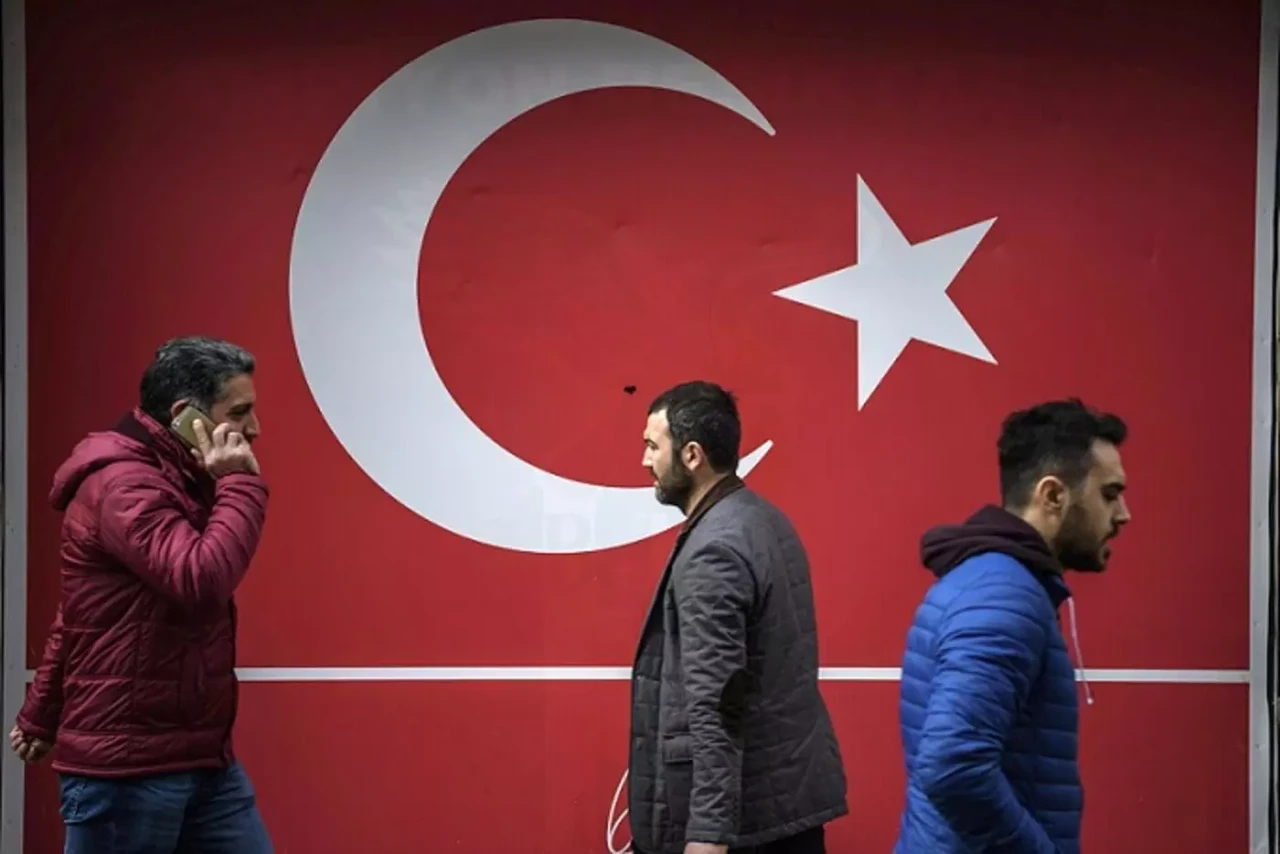Over 50% of Istanbulites cannot pay credit card balance: Municipality survey
 Turkish national flag on display at a bazaar in Istanbul (AFP Photo)
Turkish national flag on display at a bazaar in Istanbul (AFP Photo)
A January 2025 survey, “Istanbul Barometer,” conducted by the Istanbul Metropolitan Municipality’s Istanbul Planning Agency (IPA) revealed that a significant portion of the city’s population is facing financial hardships, particularly highlighting that over 50% of Istanbulites were unable to fully pay off their credit card balance.
The findings reveal a concerning picture of financial instability and increasing stress among the city’s inhabitants.

Rising debt, unpaid credit card bills
The survey suggested that Istanbulites faced great difficulty in managing credit card debt. According to the report, more than half of the city’s population, 55%, is unable to fully pay off their credit card balances. A further 32.5% of participants can only make the minimum payment, while 9.8% reported being unable to pay anything at all.
The research also highlighted a broader pattern of borrowing. Around 50.2% of participants took out personal loans in January, while 27.3% used flexible banking services, and 16.5% turned to friends or family for financial help.
Economic strains continue, declining standard of living
The study pointed to widespread economic strain, with 49.7% of participants admitting that they struggled to make ends meet in January. More than a quarter, 26.7%, reported that they had to cut back on discretionary spending to stretch their budget.
Only 11.5% of the respondents said they could comfortably meet their expenses and save.
The economic situation also prompted many to seek alternatives to traditional spending habits. Discount markets and neighborhood bazaars emerged as the most popular shopping venues, with 26.1% of residents choosing discount stores and 23.6% opting for local markets for their grocery and daily needs.

Psychological toll: Stress and anxiety
In addition to the financial difficulties, the survey also delved into the psychological well-being of Istanbul’s residents. The results were equally concerning, as stress levels were measured at an average of 7.2 out of 10, with anxiety at 6.6.
The survey also revealed that 15% of participants considered their mental health to be poor, indicating that economic instability is taking a serious psychological toll on the population.
Despite these challenges, 75.4% of employed Istanbulites reported being satisfied with their jobs, though this didn’t translate into higher happiness levels, with the overall happiness score remaining low at just 4.9 out of 10.
Public’s view on economy, future prospects
When asked about the future of the Turkish economy, the majority expressed pessimism. Only 17.5% of respondents believed the economy would improve, while a larger portion, 35.1%, thought it would continue to worsen.
This outlook is reflected in the lack of optimism about the job market, with 34.3% of participants stating they do not believe they could find a job in the near future.

Investment preferences amid economic uncertainty
The survey revealed that the most popular investment choice among those who could save was gold, with 59.7% of respondents opting to invest in the precious metal. In contrast, only 15.9% of participants invested in stocks, and 13.1% turned to cryptocurrency.
The preference for gold reflects a desire for tangible, low-risk investments during uncertain times.



